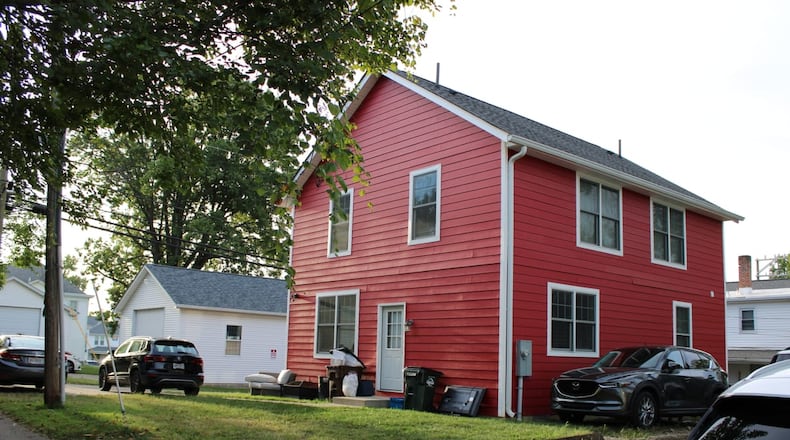Alley lot moratorium results in series of proposed code updates
Oxford has had a moratorium on new developments on alley lots since last April as city staff in the community development department evaluated the challenges those properties face with zoning restrictions, utilities and safety.
The most significant of the seven ordinances introduced will create a new site plan review process for alley lots if passed. The lots would be subject to 10 categories of review criteria managed by staff, and setback requirements would be reduced to allow for more compact developments, Community Development Director Sam Perry said. A separate ordinance would require public notices to go out for the site plan reviews.
The other ordinances will bar the creation of new alley lots, update existing code language to include “alley developments” where applicable, eliminate minimum parking requirements for alley lots and require raised curbs when parking spaces are less than three feet from a building, and adjust the definition of frontage to account for alley lots if passed. A final ordinance, introduced by Fire Chief John Detherage, would require sprinkler systems and smoke detectors that dial out to the fire department for alley developments.
Council member Jason Bracken said the city should consider making sprinkler systems a universal requirement for the city, an idea Mayor Bill Snavely said was “worth consideration.”
While previous discussions on the moratorium, including a work session in September, led to public feedback and skepticism from developers, no members of the public spoke against the ordinances at the Feb. 4 meeting.
Ordinances require two readings to pass, and council will vote on these ones at the Feb. 20 meeting.
Later, Perry introduced two ordinances related to a 32-unit Habitat for Humanity development planned on Chestnut Street. The development will go on 3.5 acres of property owned by the city if approved, and Perry said the intention is to help meet one of Oxford’s goals of providing affordable housing for residents.
Tobacco licensing update would make it easier to transfer licenses
City officials also considered an ordinance which would update the city’s tobacco retail license ordinance to allow for transfers of licenses between businesses. The city currently has 23 license holders, down from 27 when the licensing program was first introduced.
The current legislation makes it difficult to transfer licenses for someone buying a business at the same location as current license-holders, Perry said, an issue the amended ordinance would address. The new ordinance, if passed, will also incorporate a new penalty section for businesses that sell tobacco products without a license.
Cathryn Loucas, an attorney representing Hiren Desai, the owner of Oxford Pit Stop, said her client wouldn’t be able to sell his business to an interested buyer if the legislation isn’t updated. “In effect, it depletes the value of Mr. Desai’s business,” she said. Loucas and Desai supported the ordinance’s passage to help facilitate sales of businesses with tobacco licenses in town.
The city’s current tobacco license policy includes a restriction on the total number of licenses allowed, tied to the population. Right now, Oxford should only have 17 tobacco licenses under the language, but all existing businesses were grandfathered in. Council members David Prytherch and Chantel Raghu expressed concern that making it easier to transfer licenses could diminish the ultimate goal of reducing the density of tobacco retailers in town.
“I can understand why a business owner would want to transfer the license,” Prytherch said. “But I can also potentially see — if it were constitutional — to not allow the license to be transferable at all so it fulfills the public goals of reducing the concentration.”
Oxford City Council will meet again at 7:30 p.m. Feb. 18 in the Oxford Courthouse.
This article was first published by the Oxford Free Press, a content partner of the Journal-News. See it online at oxfreepress.com.
About the Author
